
Your turn:
If you like, use one of the downloadable images below and post to social media with your answer to one of these questions:
1. Do you think of lynching as something that happened only in the distant past? How does the reflection from Dr. Beck and Dr. Tolnay alter your perspective (or not)?
2. If we are living in a time when lynching is still a scourge, do you think that you yourself have a place to fill in history?

|

|
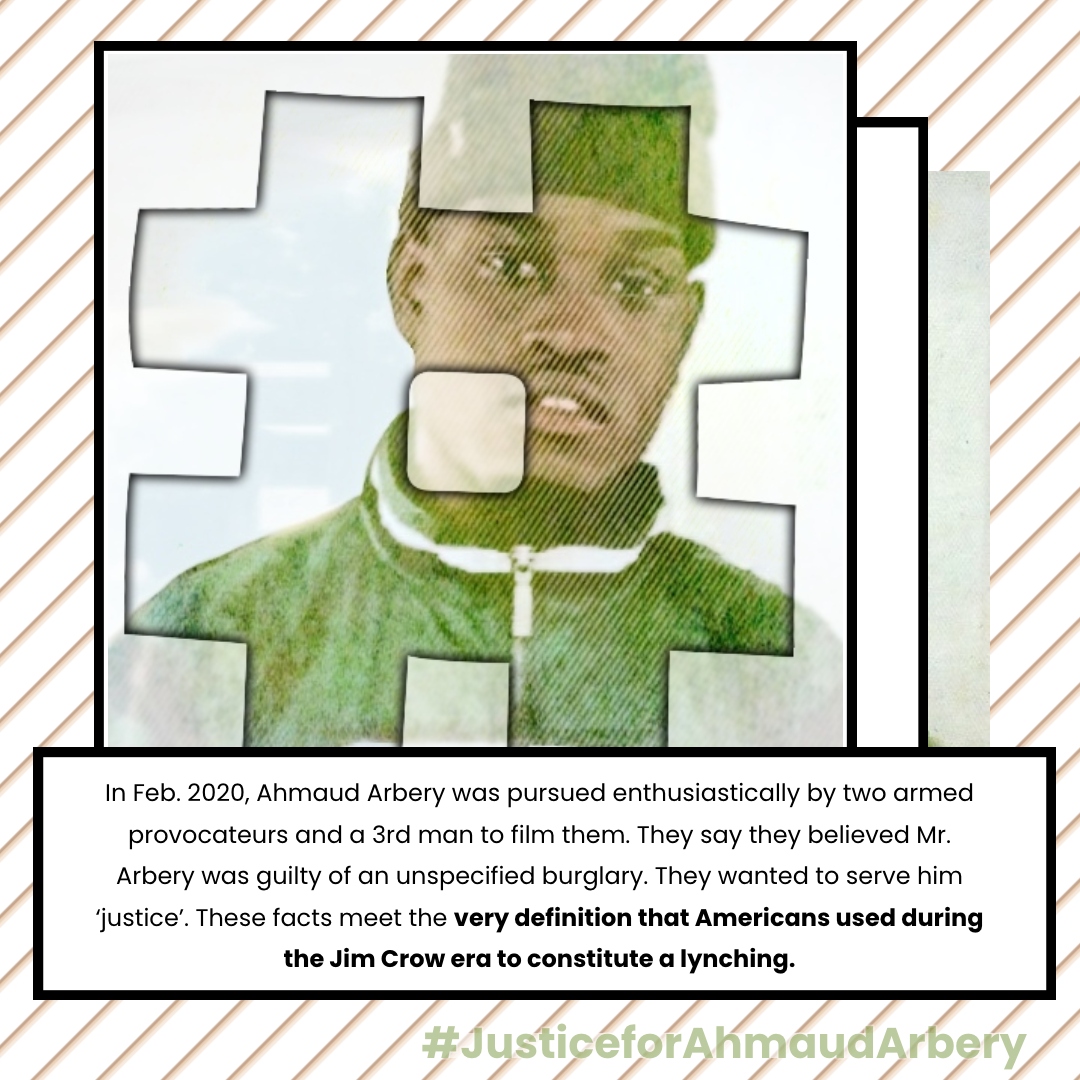
|
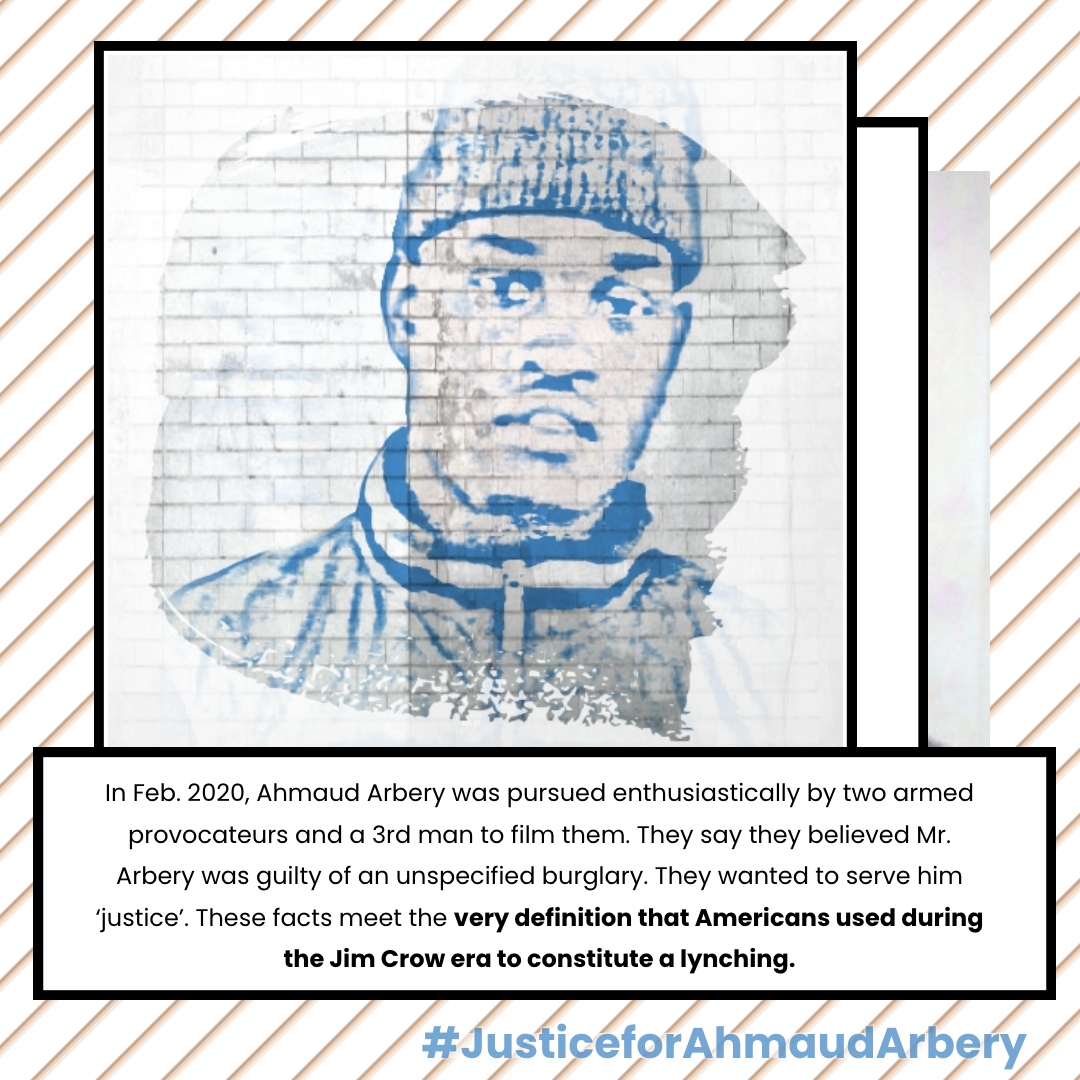
|
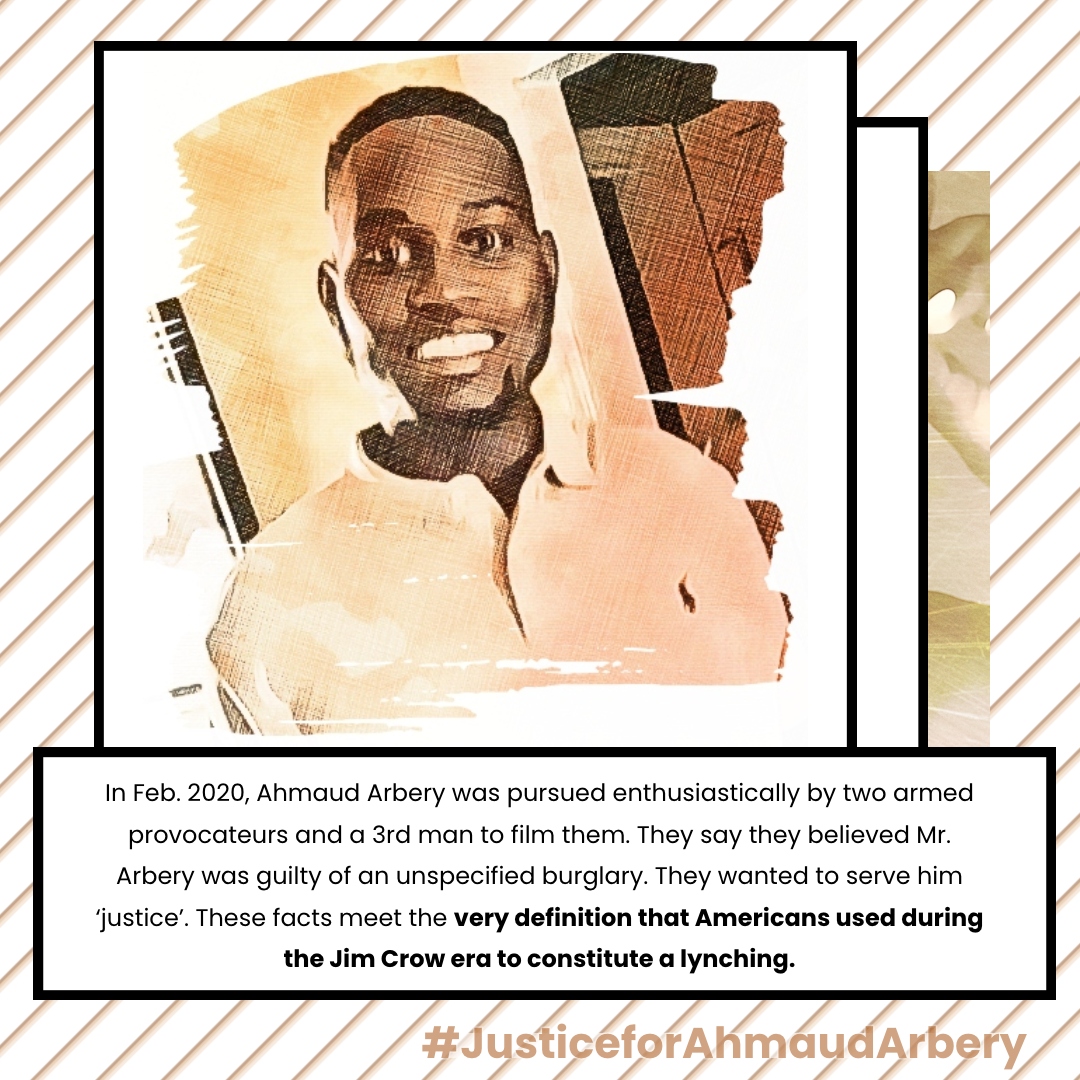
|
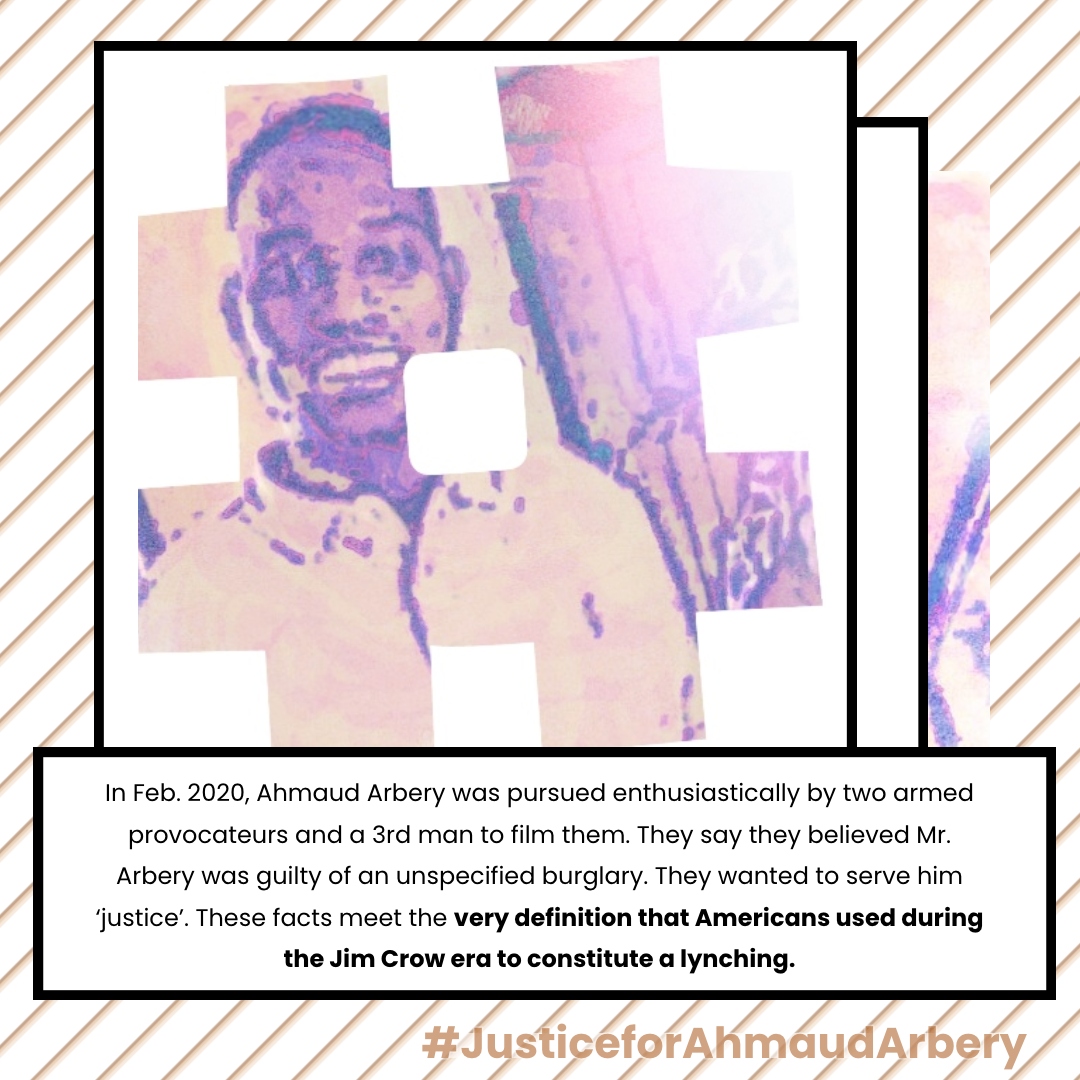
|
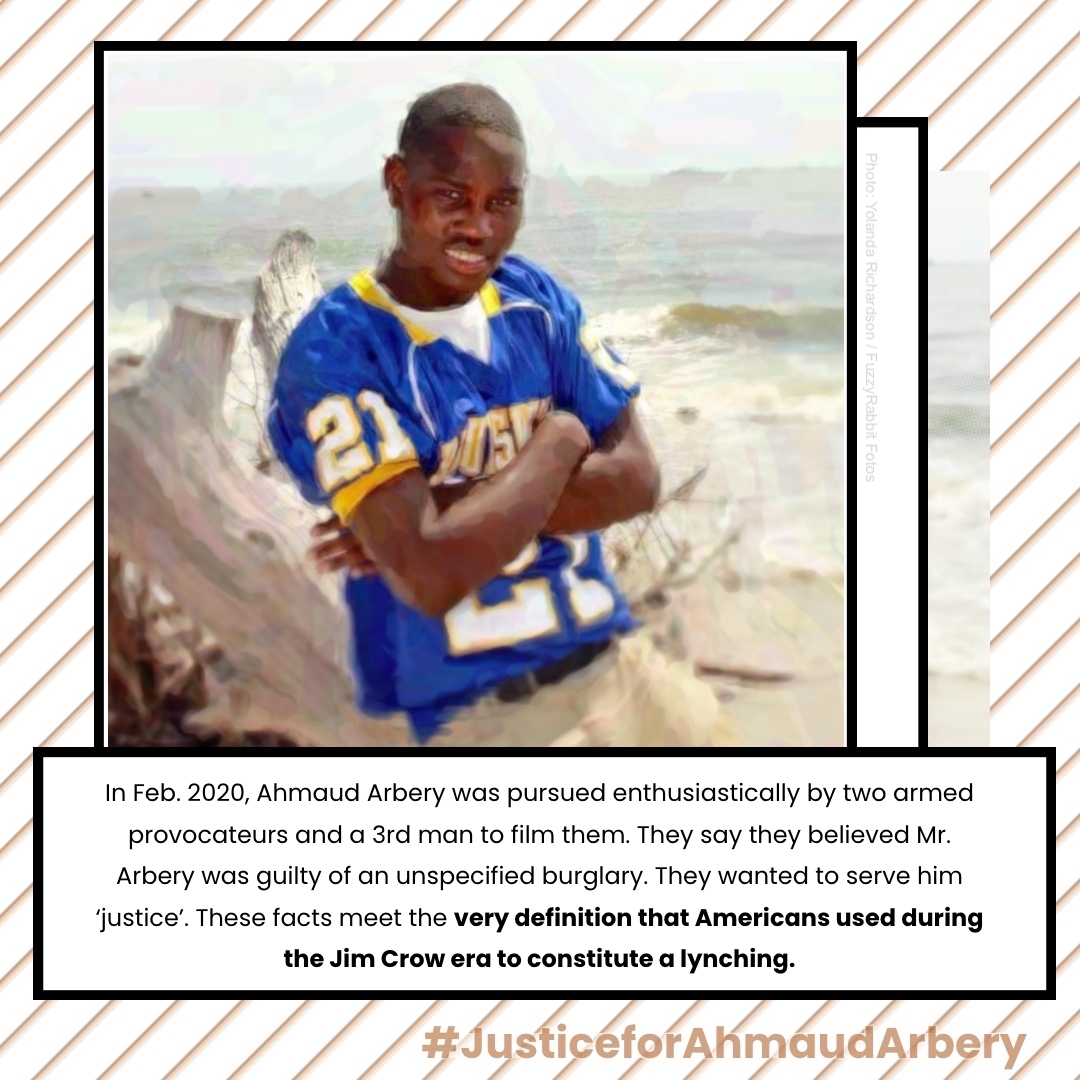
|
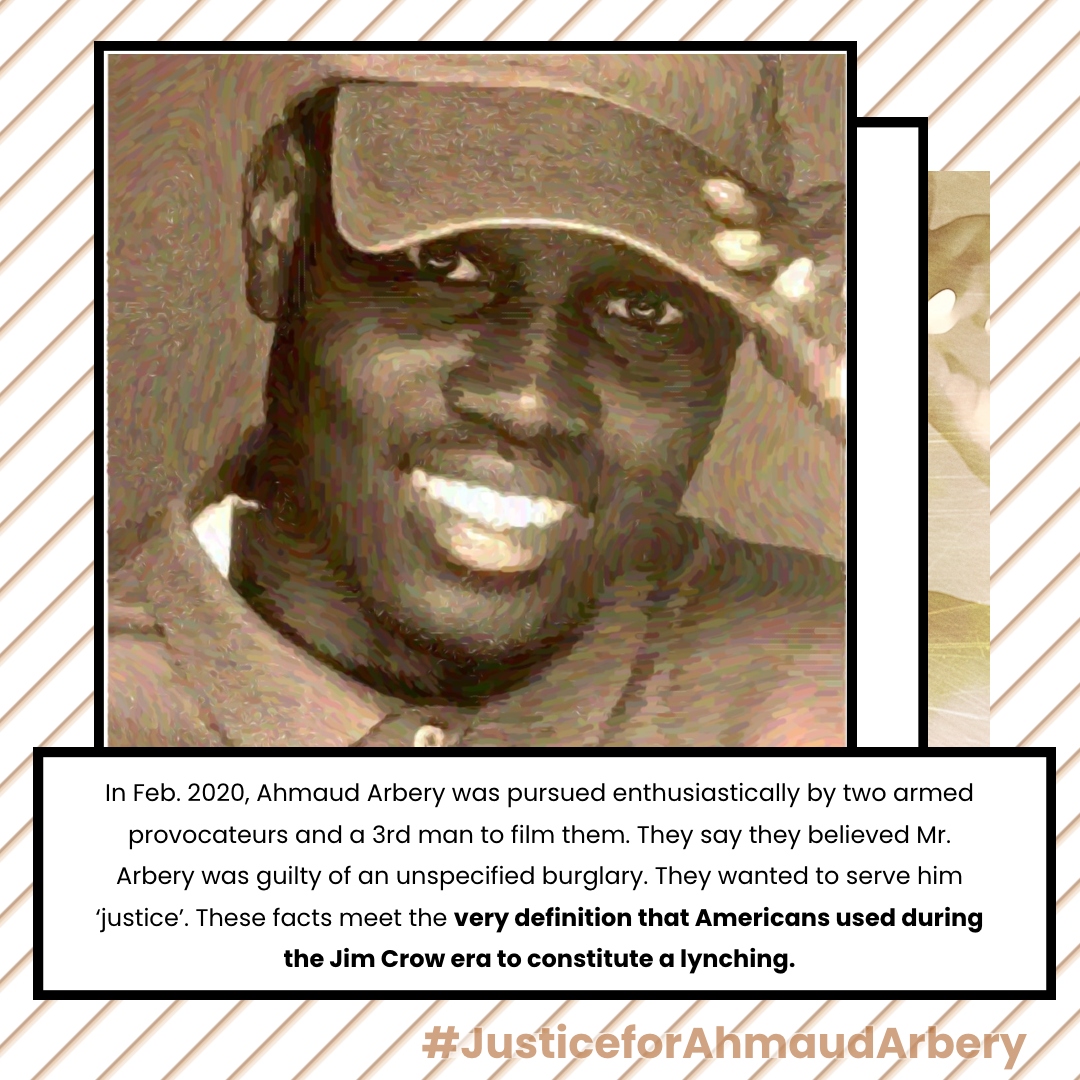
|
See a transcript of words on these images (artistic, colorful image of Ahmaud in life, smiling)
In Feb. 2020, Ahmaud Arbery was pursued enthusiastically by two armed provocateurs and a 3rd man to film them. They say they believed Mr. Arbery was guilty of an unspecified burglary. They wanted to serve him ‘justice’. These facts meet the very definition that Americans used during the Jim Crow era to constitute a lynching. |
